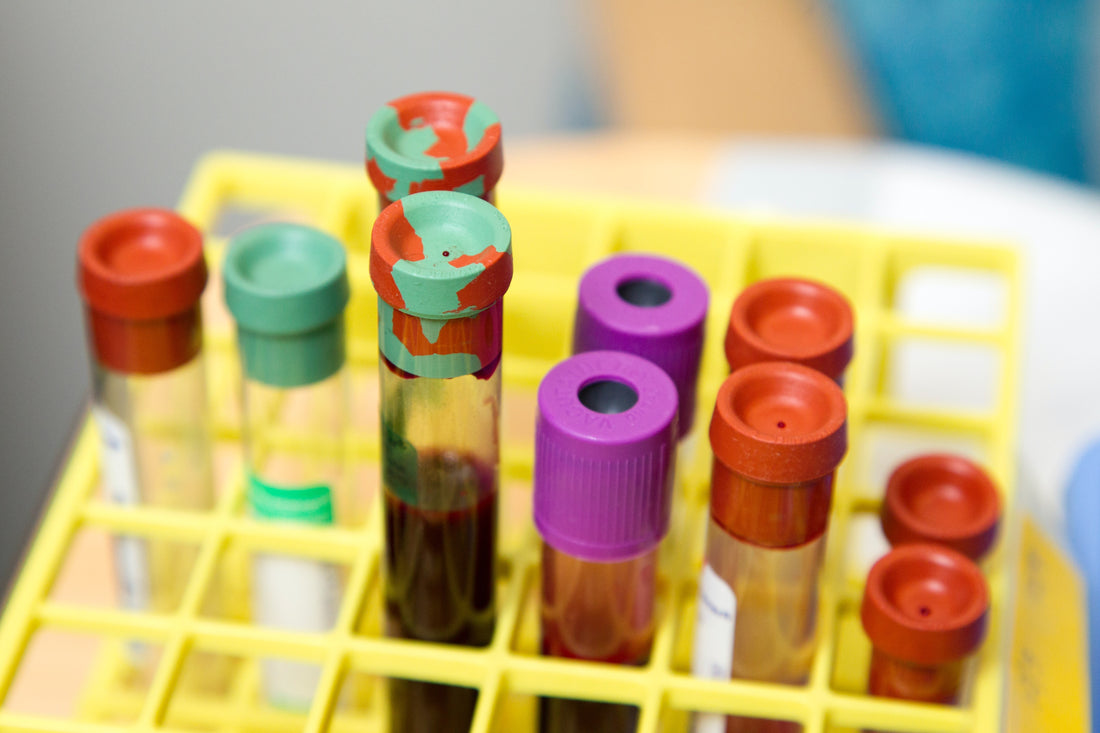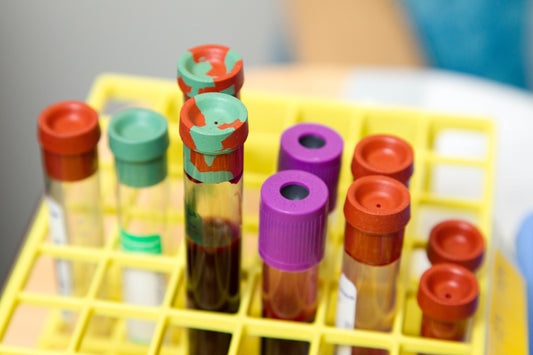When someone asks me if I do hormone testing they usually mean their sex hormones - progesterone, oestrogen, testosterone. Hormones is a pretty big umbrella term and could refer to blood sugar, adrenal or thyroid hormones too. All of which play an important role in your health and can be responsible for issues, just as often as sex hormones are.
For clarity, this blog will focus on sex hormones or reproductive hormones.
Testing these hormones can help pinpoint issues and causes behind common symptoms like:
Acne
Anxiety
Heavy bleeding
No periods
Light periods
Anovulation
Headaches
Hair loss
Vaginal dryness
Irregular cycles
Mood swings
Infertility
Miscarriage
However, it’s not often that a single test can diagnose a condition. Test results + symptoms + patient history is needed to decide on the situation.
Example:
If a patient presents with premenstrual migraines I need to look at:
Progesterone - how many days is she making it for? Is there enough the whole luteal phase or does it run out too quickly?
Oestrogen - is enough made cycle long? Does it drop off to quickly? Is she making too much in the second half of her cycle and the drop at the end of her cycle is consequently too big?
Nutrient levels - does she have sufficient nutrient stores to make the hormones she needs?
Now some of this information I can get from a blood, saliva or urine test, but what makes that data valuable is symptom tracking and temperature tracking. Why temp tracking? Because it tells me when she ovulates and how well progesterone gets produced. Having symptoms mapped against days of the menstrual cycle helps to put the results of the hormone tests into context. Your symptoms and hormonal function on day 18 will be very different to another person on the same cycle day.
What’s the difference between blood, urine and saliva testing?
Blood testing
- Quick, simple
- Lower cost when GP assists with ordering tests
- Great for thyroid hormones, FSH, LH and blood sugar hormones
- Provides a quick snapshot, but might not get the full picture
Urine testing - i.e DUTCH test
- More expensive and time-consuming
- Can offer good insights into oestrogen production and the breakdown
- Helpful for oestrogen-based conditions - some cancers
- Helpful for mapping the whole cycle, and easier to measure hormones daily at home with urine than a blood test every day
- Captures a better reflection of 24-hour production
Saliva testing
- A good way to look at active or unbound hormones
- Easy to do
Can hormone testing tell me if I am in perimenopause?
No, testing can rule out other causes of symptoms, but can’t tell you if you are in perimenopause through testing alone. Perimenopause needs to be diagnosed based on history and symptoms and tests to rule out other potential causes of changes.
Can hormone testing diagnose PCOS (Polycystic ovarian syndrome)?
Somewhat, yes. Hormone tests make up some of the diagnostic criteria for PCOS and help rule out other causes of irregular cycles. Tests which look at androgen production are used as one of the markers of PCOS.
Can hormone testing diagnose endometriosis?
No, there are no tests that will diagnose endometriosis. Endometriosis needs to be diagnosed via surgery or a MRI scan. Ultrasound can occasionally detect endometriosis or indications of the disease.
How do we manage hormone testing in the WBJ clinic?
The aim is only to use what is necessary, we are not in the habit of ordering any and every test in the hope we might find issues. Most of the time our first choice is to work with your GP to order appropriate blood tests, otherwise private blood, urine or saliva testing is used.
How can I test my hormones on my own?
The best way to get an understanding of what’s going on with your hormones is to start tracking your cycle and symptoms then follow this up with hormone testing. I explain which symptoms to track and how to track ovulation in my Cycle Tracking and Testing Webinar and outline which hormone tests to order and what day of your cycle to test (this is critical!). The webinar also outlines ideal levels for your hormones.
It’s important to test your hormones on the right days.
Hormones to be tested on day 2 or 3 of your cycle:
LH
FSH
Oestrogen
Testosterone
Hormones to be tested 7 days post ovulation, or 7 days before your period is due:
Progesterone
Oestrogen is tested now sometimes too
You can self-refer for some blood tests in NZ including hormone blood tests at your local lab. However, this isn’t usually the best option as it can be easy to get the interpretation of the results wrong. Trust an expert to interpret them for you with your symptoms in mind. Read more about the care options with Jessica and Tayla to help you get your hormones sorted.




